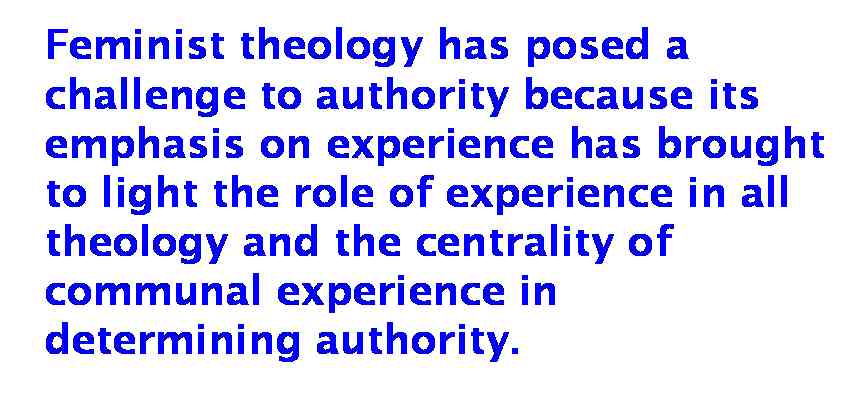part of www.donnan.eu
QUESTIONING THE
MAGISTERIUM - SUMMARY
(Chapter 6, section
A)
For the full contents of "Authority in Feminist Biblical Interpretation" by Beryl Donnan, and other online sections see here.
 In
essence the argument of chapters two and three is
that God's revelation of G-dself is always to a community of people and
is on-going through history. However Christian revelation became
"fixed" in biblical text and church tradition and has claimed authority
in a way that controls the community and limits future
development. This process has obscured both the diversity of
historical experience that has contributed to the expression of God's
revelation and the considerations of political power that have
encouraged the patriarchal marginalisation of women and "others".
In
essence the argument of chapters two and three is
that God's revelation of G-dself is always to a community of people and
is on-going through history. However Christian revelation became
"fixed" in biblical text and church tradition and has claimed authority
in a way that controls the community and limits future
development. This process has obscured both the diversity of
historical experience that has contributed to the expression of God's
revelation and the considerations of political power that have
encouraged the patriarchal marginalisation of women and "others".Chapter four shows how feminist theology has posed a challenge to this authority because its emphasis on experience has brought to light the role of experience in all theology and the centrality of communal experience in determining authority. It has also exposed the exclusion of women and the suppression of their experience in shaping the tradition. In the light of the feminist understanding that women are equal to men the question is how the authority of text and tradition should be challenged and changed to do justice to this insight.
Fiorenza's answer, which is the most radical of those feminist theologians who do not reject the tradition altogether, is to focus on the broad political goal of women's liberation from oppression in society and the church. Thus she substitutes the praxis norm of the experience of "women-church", struggling for liberation as the determining authority. As chapter five indicates this struggle demands an explicit advocacy stance because the ecclesial and academic establishments have scarcely begun to respond to these challenges.